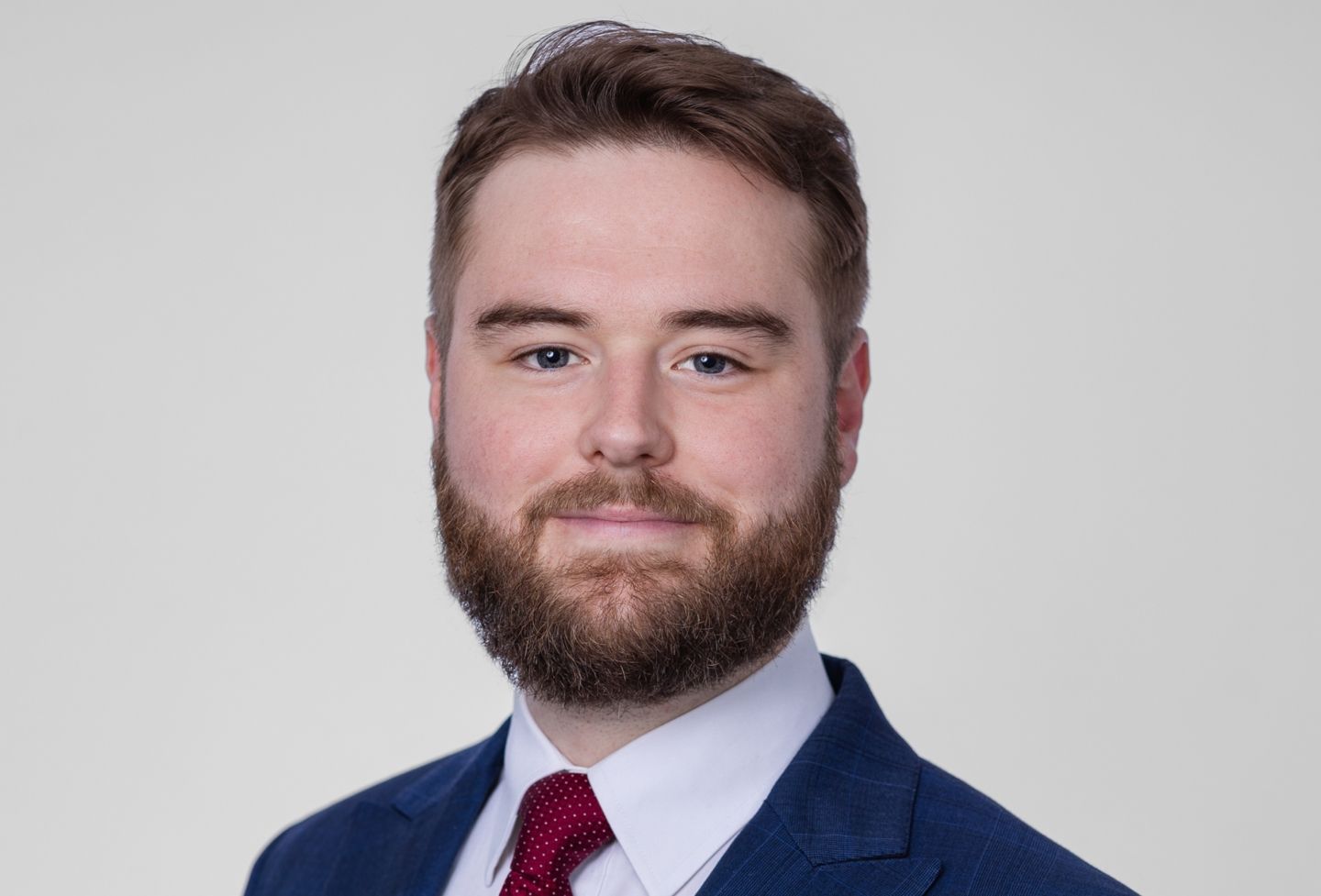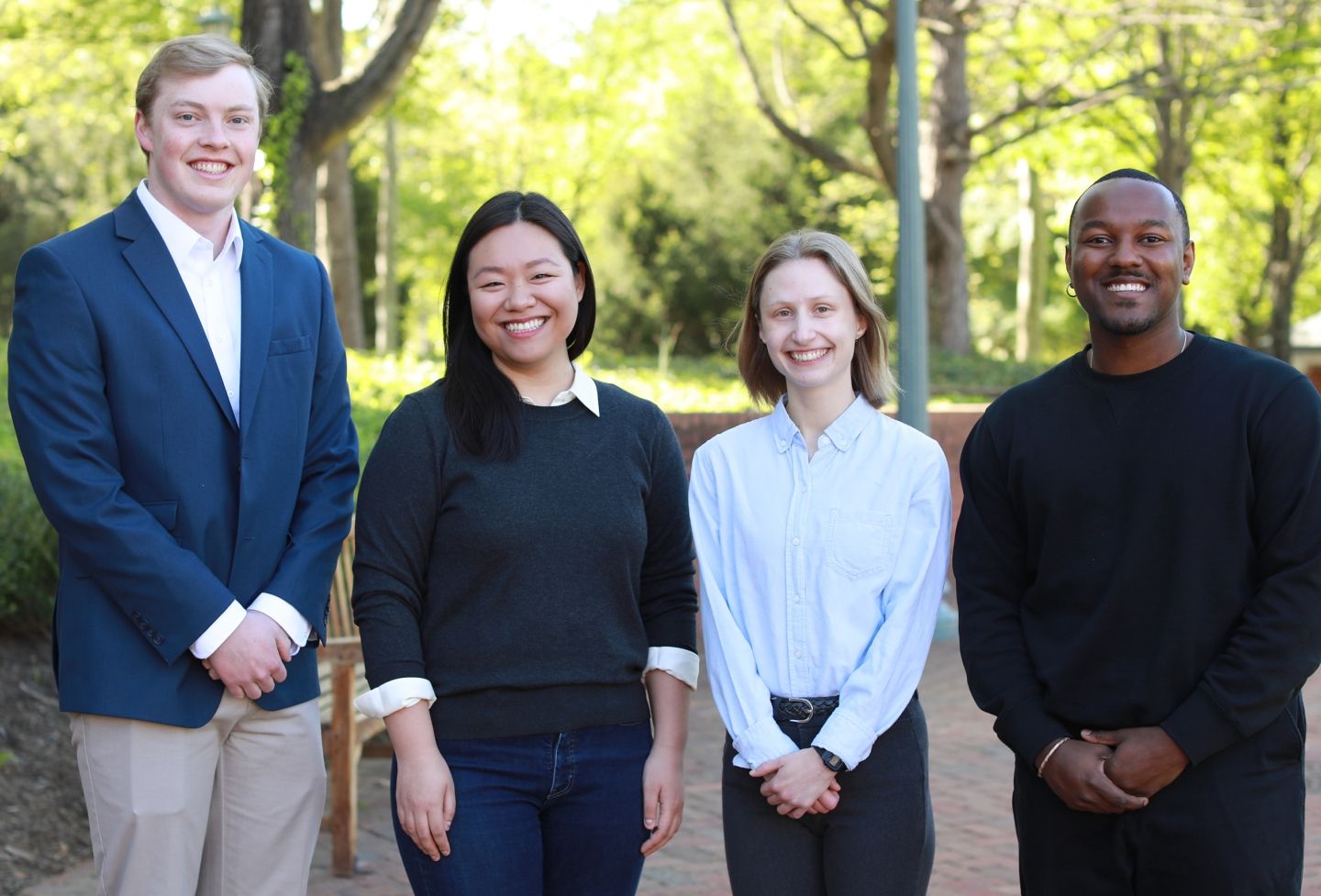Monsanto Exec Offers Tips on Working as Outside Counsel
Corporate executives hiring outside counsel want realistic advice, consistency and credibility, said David Snively, senior vice president, secretary and general counsel of agribusiness giant Monsanto.

Snively, who spoke to students Monday, is experienced in dealing with outside counsel through his work with Monsanto, a multinational agricultural biotechnology corporation and the world's leading producer of genetically engineered seed and the herbicide Roundup. The corporation nets annual revenues of more than $8 billion a year, and about 90 percent of large-acre crops in the United States include genes developed by Monsanto.
Snively warned students to avoid his four pet peeves when they find themselves working as outside counsel. First, he said, don't fake it. If an attorney doesn't know the answer to a question, he or she should either allow a knowledgeable colleague to answer the question or should say, "I don't know, but I'll find out and get back to you."
Snively also told students to be honest and realistic with their clients, and to avoid over-optimism.
"Over-optimism kills. We can smell it a mile away. Don't say the case is a lock when it just isn't true," he said. "Statistically, even the best case can be lost. Every case can be lost based on dynamics. Eight out of 10 is probably as good as it gets in the jury system in America."
Snively warned future lawyers against "death by PowerPoint." Unless done really well, he said, PowerPoint presentations dumb down complex information, or can make a presentation unbearable by using too many slides, or too many words on each slide.
Finally, Snively told students, "waffles are for breakfast." He said he will never give repeat business to an outside counsel who flips his or her views in the middle of a trial.
"I hate trial lawyers who give you one set of odds early in the case or in the middle of the case or before the case," he said. "Then, you get into the middle of the trial and they flip on you or they lose their edge and their belief that you're going to win suddenly goes from 80/20 to 50/50."
Snively also discussed relationships and how they impact perceptions and believability. Some judges, he said, harbor inherent bias against large corporations and, whether they're supposed to or not, he said, jurors will often discuss or research cases with those they trust the most: friends, family and, often, the Internet.
"It's really scary to have the view coming into the courtroom that you're not on even setting. You're not coming in presumed innocent. You're actually coming in presumed guilty," he said. "If you're there as an advocate, you're not there as someone who they trust."
Snively said this knowledge causes Monsanto to focus heavily on "inherent credibility" when choosing an attorney.
"We look at the relationships of those trial lawyers to the judges. Do they have experience? Are they a known quantity before that bench? It makes a big difference at the end of the day in terms of credibility," Snively said.
If an attorney understands the circumstances surrounding a case, including the many sources of information jurors and even judges are consuming, it can be easier to navigate through a trial.
"Every case that you're presenting has its own inherent dynamic, and there will be a time in that case when it can be won or lost and it's really how you play on all these variables that will make the biggest difference," he said.
Snively ended his presentation by engaging the students in a trivia game with prizes that, he said, will make the world a better place. In the name of each of three of the winning students, Monsanto will donate six kilograms of maize seed and fertilizer - enough to feed a family of six for a year - to a village in Malawi through the U.N. Millennium Project.
For the fourth winning student, Monsanto will donate a dairy cow to a Malawian village. Snively said the cow will produce four gallons of milk a day, which is enough to feed two families. And, because a heifer can produce offspring, he said the gift of one cow through Heifer International can end up providing food for an entire village.
"No matter who is elected to be president in the next few weeks, the reality is that America has to be responsible here at home and globally for the good of the world," he said. "We've got technology, and we can make a difference if we share it. That's what we're all about."
Founded in 1819, the University of Virginia School of Law is the second-oldest continuously operating law school in the nation. Consistently ranked among the top law schools, Virginia is a world-renowned training ground for distinguished lawyers and public servants, instilling in them a commitment to leadership, integrity and community service.


